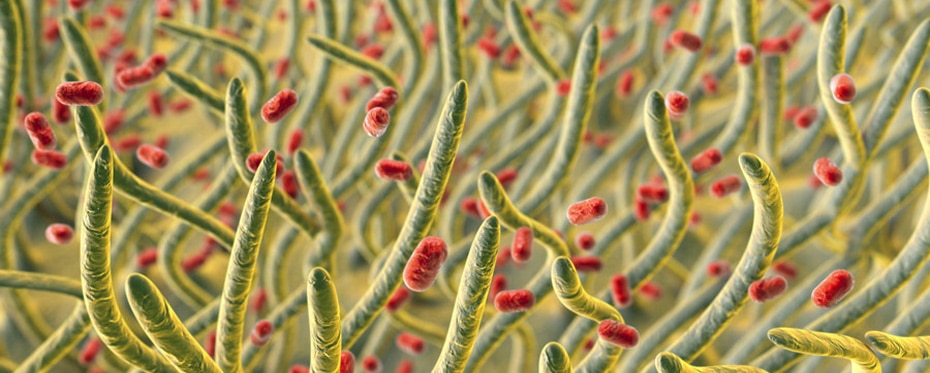Tag: proteomics
Investigating paedomorphism in the evolution of L. saxatilis

Littorina saxatilis (rough periwinkle) is often used as an example of adaptation to different ecological niches, with ecotypes adapted to life at different levels of the seashore. Professor Emilio Rolán-Alvarez and his colleagues at the University of Vigo, Spain, investigate whether one ecotype may have evolved from another by paedomorphosis. Their results indicate that, while there is some evidence in […]
Read More… from Investigating paedomorphism in the evolution of L. saxatilis
Proteomics reveals new possibilities in the fight against infection

The work of Dr Jennifer Geddes-McAlister at the University of Guelph investigates the interactions between hosts and pathogens to uncover new treatment options to combat infections. Her lab uses a range of techniques centered around proteomics, the study of proteins, to progress knowledge of fungal and bacterial infections in humans and agricultural crops. The results of this research can be […]
Read More… from Proteomics reveals new possibilities in the fight against infection
Systems biology and metabolic networks predict heterosis

Heterosis or hybrid vigour is the improved function of a desirable quality in hybrid offspring. Predicting heterosis would mean that plant and animal breeding need not depend on time-consuming and costly field tests of numerous combinations. Dominique de Vienne, Professor at the University Paris-Saclay, France, uses metabolic networks and systems biology to study heterosis. Modelling metabolic systems has relied on […]
Read More… from Systems biology and metabolic networks predict heterosis
Open-source bioinformatic solutions for ‘Big Data’ analysis

Drs Tim Griffin and Pratik Jagtap along with the Galaxy-P team from the University of Minnesota are working to develop workflows on an open source platform for the analysis of multi-omic data. They are currently focusing on using a Galaxy-based framework to investigate the integration of genomic datasets with mass spectrometry-based ‘omics’ data. But in the long term, they aim […]
Read More… from Open-source bioinformatic solutions for ‘Big Data’ analysis